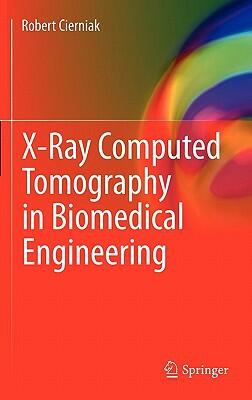
X-Ray Computed Tomography in Biomedical Engineering
بواسطة
Robert Cierniak
لا توجد تقييمات بعد
Science & Technology
History
تنسيق
غلاف صلب
صفحات
331
لغة
إيطالي
منشور
Jan 11, 2011
الناشر
Springer
الطبعة
2011
رقم ISBN-10
0857290266
رقم ISBN-13
9780857290267
الوصف
In the realm of biomedical engineering, advancements in imaging technologies play a crucial role in diagnosis and treatment planning. This work authored by Robert Cierniak delves deep into the intricate world of X-ray computed tomography and its vital implications in the field. With a keen focus on the technical aspects and practical applications, the author bridges the gap between complex imaging techniques and their usefulness in healthcare.
Cierniak explores the principles behind X-ray computed tomography, illustrating how it has transformed medical imaging over the years. By detailing the underlying technology, he presents a thorough understanding that empowers practitioners and researchers alike. The text is interwoven with real-world examples that highlight the significance of precision imaging in detecting anomalies and guiding surgical interventions.
The narrative is accessible, striking a balance between theoretical insights and hands-on applications. This work not only serves as an academic resource but also inspires future innovations in the field, emphasizing the ongoing evolution of imaging technologies.
Readers will find valuable insights that enhance their knowledge and appreciation for the complexities of medical imaging. This exploration into X-ray computed tomography reveals its potential to significantly impact patient outcomes, making it an essential read for those interested in the intersection of technology and medicine.
Cierniak explores the principles behind X-ray computed tomography, illustrating how it has transformed medical imaging over the years. By detailing the underlying technology, he presents a thorough understanding that empowers practitioners and researchers alike. The text is interwoven with real-world examples that highlight the significance of precision imaging in detecting anomalies and guiding surgical interventions.
The narrative is accessible, striking a balance between theoretical insights and hands-on applications. This work not only serves as an academic resource but also inspires future innovations in the field, emphasizing the ongoing evolution of imaging technologies.
Readers will find valuable insights that enhance their knowledge and appreciation for the complexities of medical imaging. This exploration into X-ray computed tomography reveals its potential to significantly impact patient outcomes, making it an essential read for those interested in the intersection of technology and medicine.